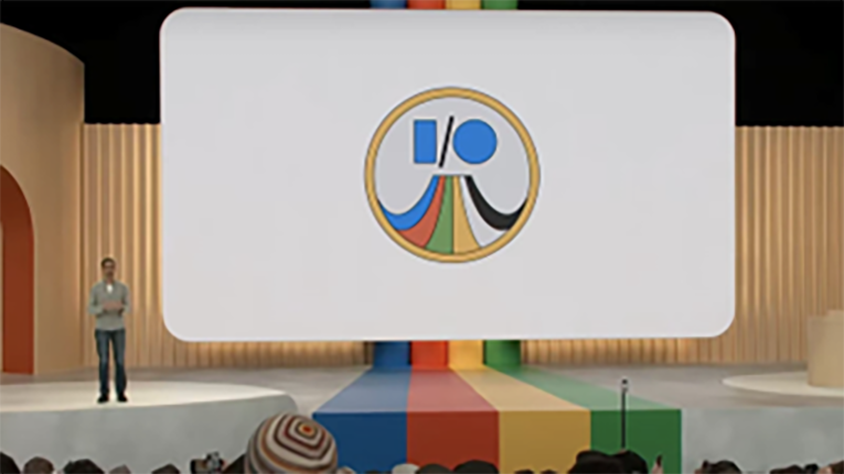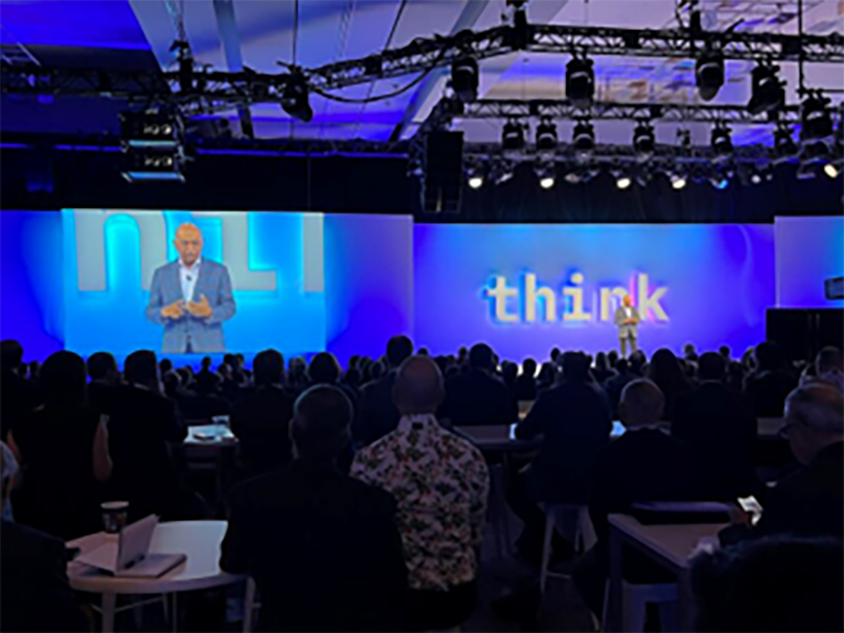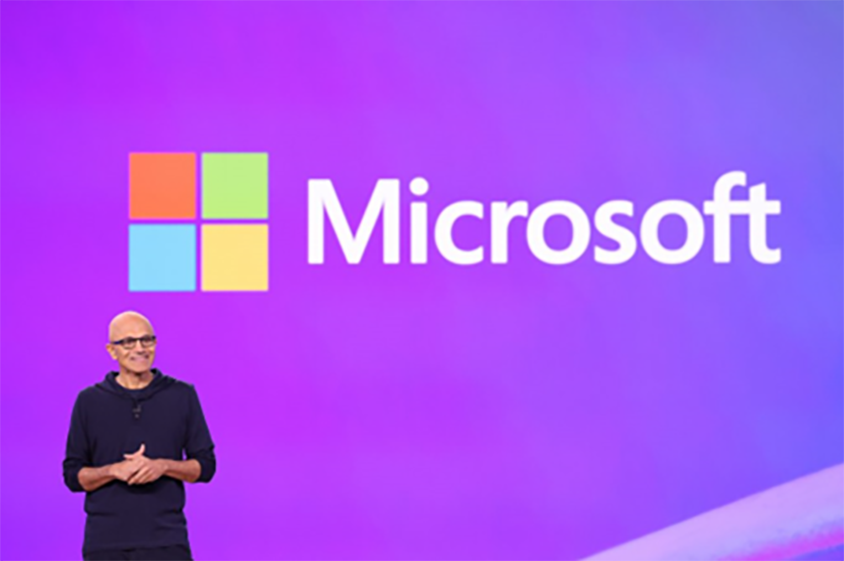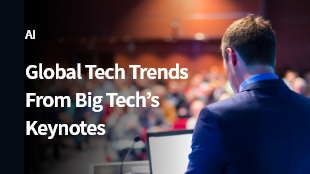Until a few years ago, big tech companies' keynotes were about unveiling new products that captivated global attention. However, in 2024, we find ourselves in a completely different era of innovation. Competition has shifted from products to the underlying technology itself. Technologies like AI, cloud computing, edge computing, and the metaverse — all with the potential to transform the future — have become the focal points. The visions of technology presented by big tech companies now carry value far beyond the products, forming a critical part of Global Tech Trends. In this article, we will explore Global Tech Trends and future outlooks by examining the visions presented in keynotes by companies like Microsoft, Google, IBM, and NVIDIA.
Highlights in 2024 Keynotes
At NVIDIA GTC 2024 (March 18-21), the event focused on AI and GPU technology advancements, highlighting the possible innovative applications with these developments. NVIDIA unveiled a new GPU architecture that significantly improves performance and energy efficiency. They explained how NVIDIA's AI platform is evolving around the Blackwell platform and introduced new software tools and libraries. These innovations enable developers to create and deploy AI models more quickly and efficiently. The Omniverse platform was enhanced with new tools for 3D simulation and collaboration, broadening its use cases across various industries. NVIDIA also showcased its latest advancements in autonomous vehicle technology. The DRIVE platform now offers improved perception, planning, and control capabilities, providing safer and more efficient autonomous driving solutions. In the healthcare sector, AI's role is becoming increasingly crucial. NVIDIA introduced new tools and collaborations to apply AI in medical imaging, diagnostics, and personalized treatments. NVIDIA's technology is driving innovation across industries like healthcare, finance, and manufacturing, all with the vision of creating a better world.
At Adobe Summit 2024 (March 25–28), Adobe unveiled a series of innovations aimed at leading the future of digital experiences. Adobe is revolutionizing creative work through AI-powered content creation tools. These new AI tools offer automated design suggestions and advanced image and video editing capabilities, enabling creators to work more efficiently. Adobe expanded the Adobe Experience Cloud, enhancing its Customer Experience Management (CXM) solutions. This solution helps businesses better analyze customer data and implement personalized marketing campaigns. Additionally, Adobe introduced new features for digital document innovation, making digital signatures and document management more seamless through Adobe Acrobat and Adobe Sign. In particular, this summit emphasized the importance of collaboration tools that provide a platform for teams to work seamlessly together, thereby increasing productivity.
At Intel Vision 2024 (April 8–9), Intel introduced its latest technological innovations and future vision, outlining its strategies for AI, edge computing, and next-generation semiconductor technologies. Intel introduced a new lineup of processors designed to maximize performance and energy efficiency while significantly enhancing AI computing capabilities. In particular, Intel's new edge computing solutions enable real-time data processing in IoT devices and industrial applications, which is expected to drive innovation across various industries. Intel is also strengthening its collaboration with open-source software to support the developer ecosystem and provide better development tools and libraries, helping developers work more efficiently. Intel's vision focuses on minimizing environmental impact by developing sustainable technologies and expanding the use of renewable energy sources to build eco-friendly data centers.
At Google I/O 2024 (May 14), the focus was on innovations in AI and machine learning (ML). Through AI and ML innovations, Google introduced significant upgrades to Google Assistant and enhanced AI-based search functionalities. Additionally, they unveiled a new AI model called Gemini, which features groundbreaking improvements in natural language processing and image recognition. Google also announced the latest version of the Android OS, featuring enhanced user experience and new security features. Emphasizing the importance of strengthening the developer ecosystem, Google introduced new tools and platforms to support developers. In the realm of smart homes and the Internet of Things (IoT), Google expanded its Google Nest product line, further building the smart home ecosystem. Google Cloud saw expansions in security and data analytics services, providing the future of cloud computing.
 Google I/O 2024 (Source: Google)
Google I/O 2024 (Source: Google)
At Dell Technologies World 2024 (May 20-23), the spotlight was on significant advancements in AI, edge computing, and data center solutions. Dell emphasized the integration of AI across its product line and highlighted its collaboration with NVIDIA to create an AI factory that harnesses data to generate intelligence. Dell introduced five new AI-optimized PCs designed for edge computing, featuring advanced architecture combining the CPU, GPU, and NPU for efficient AI model inference. The unveiling of the Dell NativeEdge platform was a key highlight, aimed at simplifying the deployment and management of edge applications. Sustainability was also a focal point, with Dell discussing its efforts to build infrastructure powered by renewable energy and smart power management systems. Through the collaboration with Samsung SDS, Dell emphasized that infrastructure, such as PowerEdge servers, is crucial for AI and automation initiatives.
At IBM Think 2024 (May 20-23), the focus was on how combining cloud and AI can accelerate digital transformation for enterprises. IBM introduced a new hybrid cloud platform designed to help companies manage their cloud environments more flexibly and securely. They also showcased AI-powered automation solutions to maximize the efficiency of business processes. IBM Watson's latest updates offer enhanced natural language processing capabilities and data analytics features, helping businesses derive more accurate insights and improve decision-making. IBM emphasized the progress in quantum computing, underscoring its potential to surpass traditional computing limits and drive innovation across various industries.
 IBM Think 2024 (Source: IBM)
IBM Think 2024 (Source: IBM)
Microsoft Build 2024 (May 21-23) focused on technological innovation and strengthening the developer ecosystem. The event highlighted Microsoft's vision of making AI technology accessible and usable for all developers. To achieve this, new AI platforms and tools were unveiled. The Copilot feature is an AI-based coding assistant that supports developers by helping them write and debug code more efficiently. In this build, the capabilities of Copilot have been significantly enhanced. Microsoft also emphasized its collaboration with OpenAI, which has allowed Azure to offer even more powerful AI models, enabling companies to build better AI solutions. They introduced new development tools and platforms for the metaverse, which will make collaboration and interaction in virtual spaces more innovative. New security solutions and frameworks were also announced, emphasizing the importance of cloud security and data privacy.
 Microsoft Build 2024 (Source: Microsoft)
Microsoft Build 2024 (Source: Microsoft)
A Look at Global Tech Trends
Rapid Growth of AI/ML: AI and ML are the technologies most prominently emphasized across all keynotes. These fields are the primary focus of big tech companies as they work to enhance the user experience, maximize operational efficiency, and create new business models. This trend is evident in various innovations, such as Adobe's AI-powered content-creating tools, Google's Gemini AI model, IBM Watson's natural language processing capabilities, Intel's AI computation processors, Microsoft's Copilot feature, and NVIDIA's AI platform.
Evolution of Cloud Computing: Cloud technology continues to be a significant trend in the IT industry. IBM's hybrid cloud platform, Google's efforts to enhance cloud security, and Microsoft's collaboration with OpenAI through Azure highlight this. Cloud technology helps businesses accelerate digital transformation and manage data more efficiently.
Edge Computing and IoT: Edge computing and the IoT are driving innovation across various industries by enabling real-time data processing and connectivity. Intel's edge computing solutions, Google's smart home ecosystem, and NVIDIA's Omniverse platform are gaining attention in this field. These technologies are expected to bring significant changes to manufacturing, healthcare, smart cities, etc.
Security and Privacy: Data security and privacy are critical issues every business emphasizes. Microsoft and Google are strengthening their security solutions and frameworks to help businesses manage data more securely. Advances in cloud security, data encryption, and access control technologies are enhancing trust and reliability in the digital environment.
Metaverse and Virtual Reality (VR): Microsoft and NVIDIA are exploring the potential of the metaverse and VR technologies to transform online collaboration and interaction. The metaverse is expected to drive innovation in enterprise collaboration, education, entertainment, etc. Microsoft's new development tools and platforms and NVIDIA's Omniverse platform are making collaboration in virtual spaces even more innovative.
Implications
The technology trends highlighted in big tech companies' keynotes suggest that the global IT industry will continue to evolve and advance rapidly. The ongoing development of AI and ML will enable more sophisticated and personalized user experiences, driving innovation across various fields, including autonomous driving and healthcare. Cloud computing and hybrid cloud strategies will accelerate digital transformation for businesses, while edge computing and IoT will create new business models through real-time data processing and connectivity. Security and privacy still remain critical issues, with companies continuously striving to address these challenges. Metaverse and VR technologies will enable new forms of collaboration and interaction, revolutionizing our daily lives and work environments.
In conclusion, the global IT industry is in a state of constant change driven by technological advancements, and these changes will significantly impact our lives and the business landscape. Preparing for the future IT environment through ongoing innovation and collaboration is crucial.
▶ This content is protected by the Copyright Act and is owned by the author or creator.
▶ Secondary processing and commercial use of the content without the author/creator's permission is prohibited.
- #AI
- #MachineLearning
- #CloudComputing
- #EdgeComputing
- #IoT
- #Metaverse
- #DigitalTransformation
- #Security

Strategic Marketing Office, Samsung SDS
Corporate Strategy & Business Development, and Customer Success Lead
- Case Study: Samsung SDS Uses Retrieval Augmented Generation for Kubernetes Troubleshooting
- Survival Strategies in the Meta World Transformed by AI
- Enterprise Readiness for Generative AI
- The Economics of AI: Cost Optimization Strategies for a Successful AI Business
- AI Ethics and AI Governance - The Social Responsibility of AI
